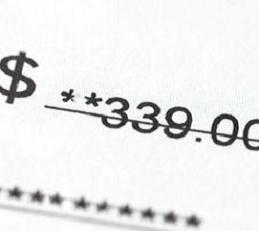Leased fee vs leasehold
What is a leased fee? Can I buy a leasehold property? A leasehold interest is created when a fee simple land-owner (Lessor) enters into an agreement or contract called a ground lease with a person or entity (Lessee ). Usually, you will be a qualifying tenant if your original lease was for more than years.
The freeholder will charge for extending the lease.
The cost will depend on the property. If you and the freeholder can’t agree on the cost of extending the lease , you can appeal to the Leasehold Valuation Tribunal. In this split, the “leasehold” is the interest of the lessee and the “leased fee” is the amount of money or capital that is provided to the property owner. In oil and gas leases, mineral rights owners are often granted upfront leased fees for the rights to explore the property for precious minerals. If you own the property and you have leased out all or a portion of it, then you have “ leased fee” ownership rights.
Once the lease expires, then it reverts back to “ fee simple” ownership rights. If you are a tenant to a property, then you have “ leasehold” ownership rights. Historically a typical lease length was years, although more recently 1years has become the standar while some last as long as 9years.
However, any lease under years is dangerous territory and something to be wary of when buying a leasehold property as it can make it difficult to remortgage. Leaseholders have to get permission from the freeholder to make certain alterations to the property. Leased fee interest vs.
Fee Simple Estate vs. Not only should they be differentiate but these two terms are ones that your regulator cares about. For example, let’s say your client.
A leased fee interest is the amount a lessor will accept to convey the property to the lessee, as fee simple ownership. Which has more value for you? Leaseholds, typically, have a lower value than a similar property with fee simple ownership.
An example of this interest would be a six-month lease to occupy an apartment. The leasehold estate interest for years arises when a landlord leases a. The leases are usually long term – often years or 1years and as high as 9years – but can be short, such as years. When a leased property has a lease in place that is equal to the overall market rates of similar leased properties, the value of the leasehold interest in the property is zero. The net contributory value of the lease contract to the fee owner of the property is also zero, and this directly in the market value of the leased fee interest to equal the market value of the fee simple interest. Leasehold conveyancing is the legal process for buying a leasehold property.
All homes are owned on either a freehold or leasehold basis.
Freehold means you own the building and the land it stands on outright. If the ground lessee acquires the fee interest in the property, it is arguable that the leasehold estate and fee estate have merged together (i.e., that the lesser estate (the leasehold estate) has been absorbed into the greater estate (the fee estate)), resulting in the extinguishment of the ground lease. Leasehold means you have a lease from the freeholder to use the home for a set number of years. Most are leased fee but at lease one is leasehold.
Considering they have the same credit quality and similar location and lease structures, a spread could be derived between the leased fee and leasehold sales.

Comments
Post a Comment